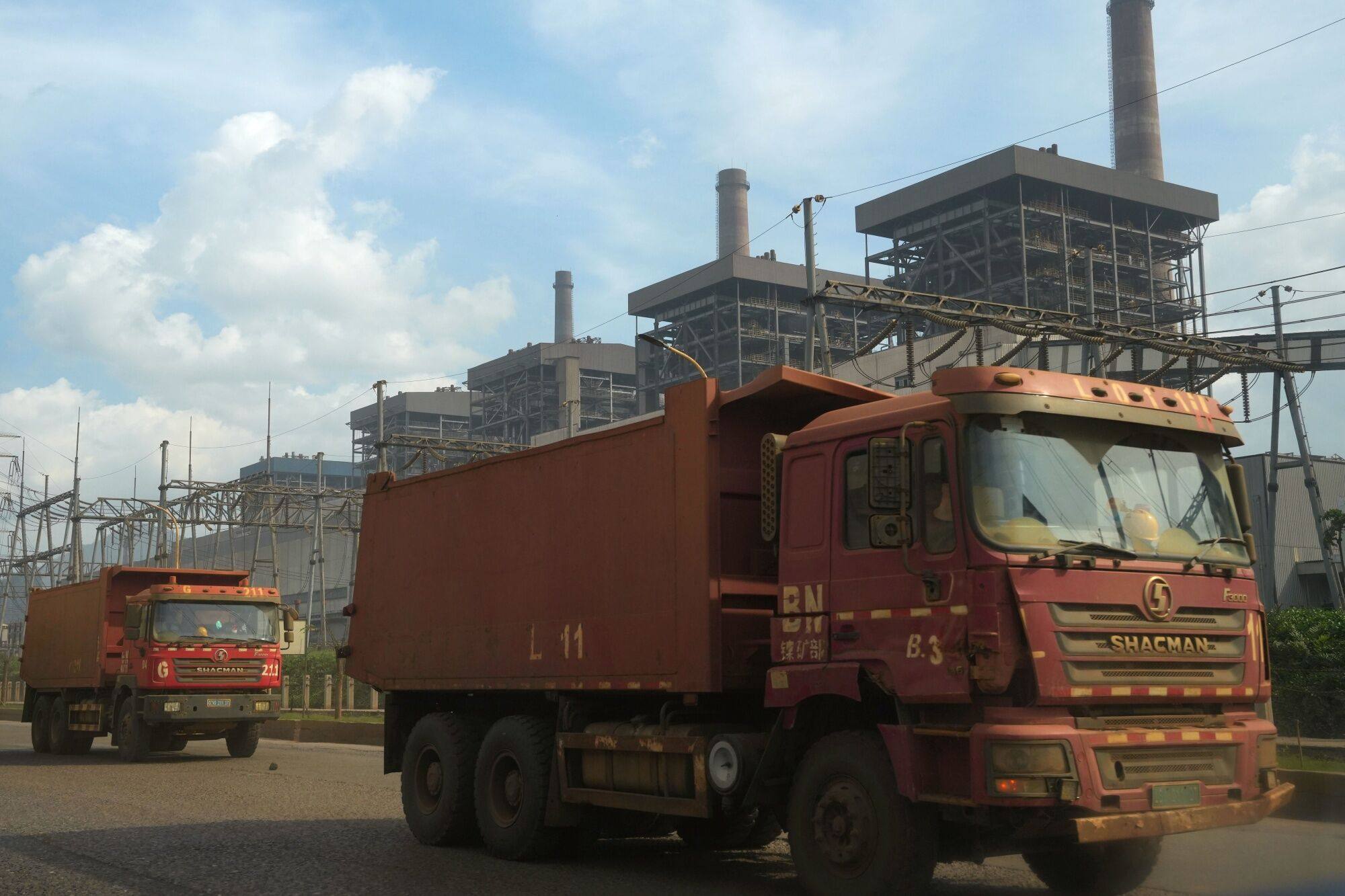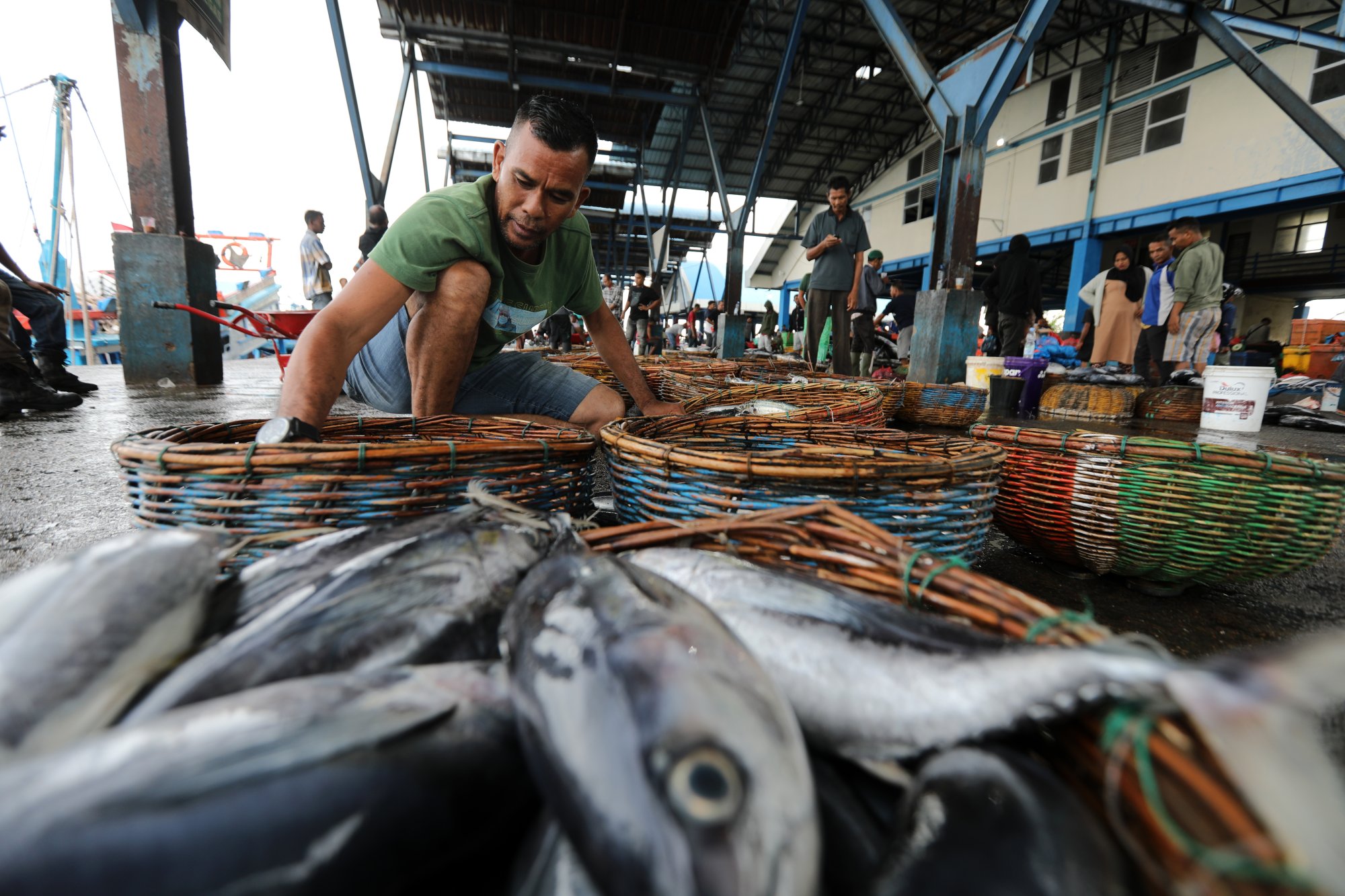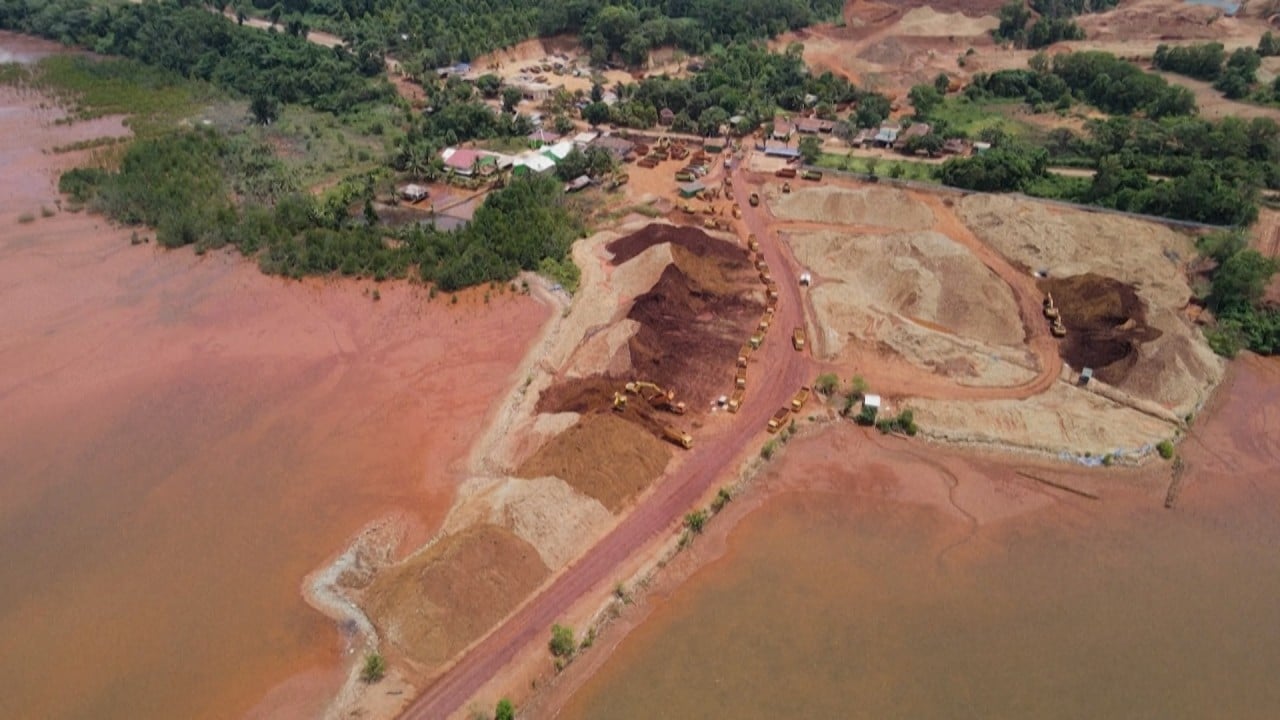“Given this history, the Indonesian government should take proactive steps to ensure that nickel mining and smelting does not contribute to labour or other human rights abuses, including by regular inspections and holding companies that commit abuses accountable,” added Shennum, one of the authors of the report.
The IWIP is an US$11 billion nickel mining and processing complex set up in 2018 by China’s stainless steel giant Tsingshan, and miners Huayou Cobalt and Zhenshi Holding Group. Within the 5,000-hectare park, Tsingshan runs a nickel mining operation called Weda Bay Nickel (WBN), under a joint venture with French miner Eramet.
The two firms own a 90 per cent stake in the project, while Indonesian mining group Antam owns the remaining interests. Other companies that reportedly have plans to build facilities at IWIP include German chemical giant BASF and South Korean nickel producer Posco.

‘Reddish water’, depleting fish stocks
In its 101-page report, the CRI interviewed 45 people living near smelting operations at the IWIP, including fisherman Max Sigoro, who said he now ventures further out to catch skipjack tuna and groupers due to depleting stocks in the waters close to shore.
“Before the mining, the fish stock was abundant, the sea was clear. Now, I can’t catch fish near [IWIP]. The water is dirty and the security chases us away. There is oil in the water from the machines,” the 51-year-old said. “Also, hot water from the power plants is polluting the ocean. Sometimes the water is reddish. We used to row our boats close to the shore to fish, now we have to go further out. It’s more dangerous to go further out and we have to calculate the tides. It’s also more expensive.”

Another local, Felix Naik, told researchers that now he must buy water every two to three days at 5,000 rupiah (32 US cents) per gallon as the water from the river was undrinkable.
“There is deforestation on the river upstream. So if it rains, the river turns dark brown and muddy,” he said.
Floods are also becoming common in the area because of deforestation, the report said. Between 2020 and 2022, at least six floods occurred near Lelilef, a village near the industrial estate. Last September, heavy rains in Weda Bay led to flash floods that killed a worker at the IWIP.
The CRI report urged global carmakers that source nickel from Indonesia, such as Tesla, Ford and Volkswagen, “to take steps to ensure that nickel used in their electric vehicles is not driving human rights and environmental abuses”.
The researchers also found evidence of low compensations for locals after the IWIP took over their land to build the premises.
According to the report, IWIP representatives in 2018 allegedly cut down trees on property owned by Maklon Lobe, who had a certificate for 38 hectares of land that he used to grow cocoa, sago and nutmeg. Maklon told the CRI that police officers visited his home “countless times” between 2018 and 2022 to discuss his refusal to sell his land to the IWIP. He added the industrial estate eventually paid him for only eight hectares and took the rest “without compensating him”.
Maklon’s case underlines how the Indonesian government has, over the past decade, opted to “prioritise the growth of the nickel industry and weaken environmental protection and the rights of indigenous communities”, the report said.
In its response, Eramet disputed the land ownership of locals in the area.
“Besides coastal areas, most of the mining concession is located in a forested area which is owned by the government. To exploit these areas, WBN goes through a forestry ‘borrow and use’ permitting process, including stringent requirements on compensation, rehabilitation, revegetation and relinquishment. The local communities do not have legal or customary ownership of the land in these forested areas.”
‘A new hell for us’: Indigenous Indonesians face fresh risks in green drive
‘A new hell for us’: Indigenous Indonesians face fresh risks in green drive
According to the CRI, the IWIP also has built at least five coal-fired plants and plans to construct seven others, which in total will provide “an estimated 3.78 gigawatts per year of energy by burning low-quality coal”.
It noted that the use of coal instead of renewable energy defeated the purpose of the green supply chain that was the main selling point of the EV industry, and caused pollution which risked the health of workers and locals.
“[We] demand that nickel suppliers stop the construction of all new coal plants and produce a time-bound plan to power operations using renewables,” CRI said.
In recent years, a string of work accidents in the China-run nickel smelters in Morowali and Halmahera has underscored what critics say is a lack of government supervision in the burgeoning nickel-refining industry.
Indonesia urged to probe causes of illegal nickel exports to China
Indonesia urged to probe causes of illegal nickel exports to China


